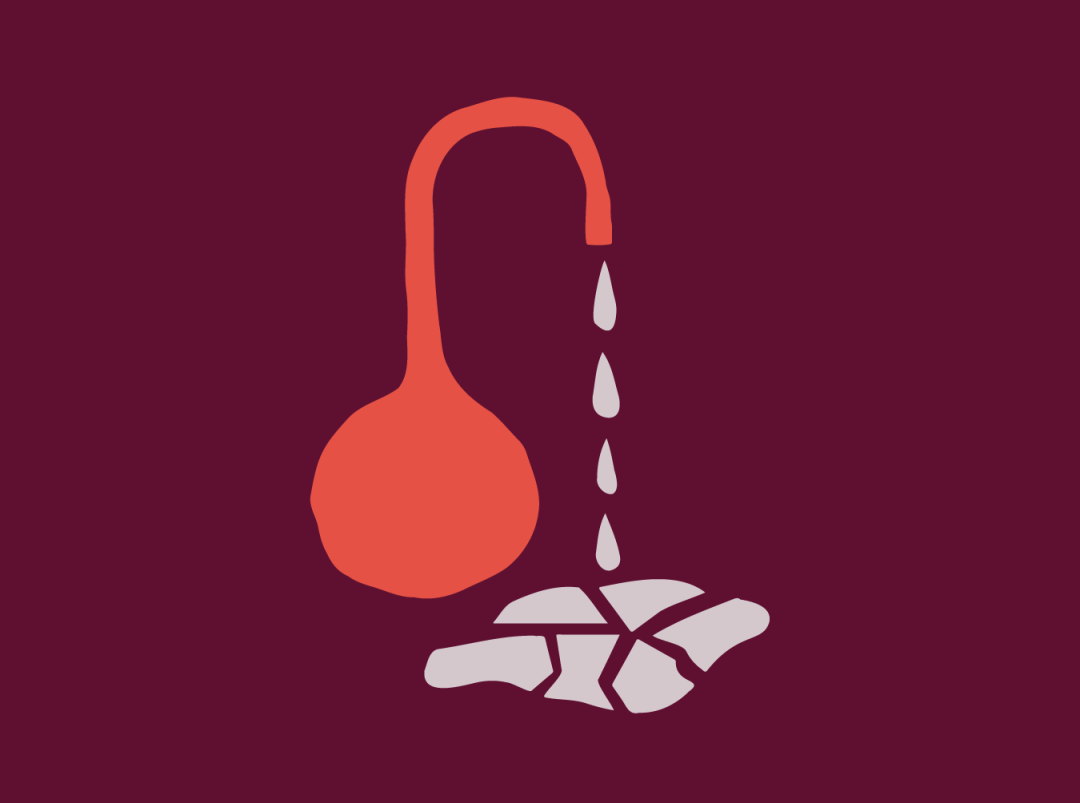#explainer
How to Explain Periods to a Child
health
·5 min read

by Team Thinx | 08/08/2023
Parents have a vital role in guiding children through the various stages of life, and one of the most significant milestones for young teens is puberty and menstruation. Talking to your child about their period can be a sensitive and daunting task, but it's an important conversation that fosters a strong bond and empowers them with knowledge for their health and well-being. In this comprehensive guide, we'll explore the best practices for initiating and handling conversations about menstruation with your child, ensuring that it's educational and supportive.
Note: The term "daughter" is used throughout the article to symbolize a collective experience. Our purpose, however, is to guide and support you in navigating conversions about periods, regardless of your child’s gender identity.
why it's important to talk to your child about periods
The first step in this journey is recognizing the importance of having an open and honest conversation about menstruation and your daughter’s first period. By addressing this topic early on, you can alleviate any anxiety or confusion your child may feel when they experience their first period. An informed approach will help them view menstruation as a natural process and embrace it with more confidence and positivity.
Creating an environment where your child feels comfortable discussing sensitive topics like menstruation is invaluable. Open communication fosters trust and strengthens your relationship, making it easier for them to approach you with any concerns or questions they may have as they navigate through puberty.
Keep in mind that every child is unique, so tailor your approach to their personality and needs. Make sure to choose a calm and private setting to have this conversation, allowing them to feel secure and free to express their feelings.
understanding menstruation: explaining the basics
Once you've set the right tone for the conversation, it's time to explain the fundamental aspects of menstruation. Explaining the basics will provide your child with a solid foundation of knowledge, dispelling any myths or misconceptions they may have about periods.
providing accurate information about the menstrual cycle: To help your child understand menstruation, provide accurate information about the menstrual cycle. Explain that menstruation is a normal part of a teen's life.
addressing common misconceptions and myths: There are many misconceptions that surround menstruation, so be sure to address them during your conversation. Clarify that periods are not shameful or dirty, and debunk any myths related to menstrual hygiene or restrictions during menstruation.
using age-appropriate language and terms: Adapting your language to your child's age and level of understanding is important. Avoid using overly complicated medical terms and opt for age-appropriate language to ensure they grasp the concepts effectively.
choosing the right time and setting: The timing and setting for the conversation are equally important as the content itself. Picking the right moment and creating a comfortable environment will facilitate a positive and engaging discussion.
pick a comfortable and private environment for the conversation
Choose a setting where your child feels safe and at ease, allowing them to express themselves openly without any distractions or interruptions. A comfortable space will encourage them to ask questions and share their thoughts without hesitation.
identifying the appropriate age to initiate the talk: While there's no one-size-fits-all answer to when you should talk to your child about their period, it's generally best to start the conversation before they experience their first period. Usually, teens begin menstruating around the ages of 9 to 16, so initiating the talk a year or two before this range may be suitable.
consider individual factors: Keep in mind that cultural factors and individual differences play a significant role in how parents approach this conversation. Tailor your discussion to align with your family's cultural beliefs and values while remaining sensitive to your child's unique personality and emotional needs.
starting the conversation
Initiating the dialogue about menstruation may feel intimidating, but following these tips will help you kickstart the conversation with ease and confidence.
choose a relaxed moment to begin the discussion: Let your child know that you want to talk about a natural part of growing up and that you're there to support and answer any questions they may have.
active listening and creating an open space for questions: During the conversation, practice active listening to understand your child's feelings and concerns fully. Encourage them to ask questions and reassure them that their curiosity is welcome.
addressing potential hesitations and concerns: It's normal for your child to feel hesitant or embarrassed about discussing periods initially. Acknowledge their feelings and let them know that it's okay to feel this way, emphasizing that open communication will make them feel more at ease over time.
answering questions and concerns
As your conversation progresses, your child may have specific questions or express concerns related to menstruation. Be prepared to provide thoughtful and supportive answers.
common questions teens may ask about menstruation: It's common for teens to have questions about various aspects of menstruation, such as the duration of periods, the frequency of cycles, and the physical changes they may experience. Address these questions honestly and reassuringly, offering clear explanations.
dealing with emotional responses and anxieties: Puberty and menstruation can evoke various emotions in young teens, including anxiety and confusion. Be attentive to any emotional responses and offer comfort and encouragement, assuring your child that it's normal to experience a mix of feelings during this time.
providing support and reassurance: Throughout the conversation, emphasize your unconditional support for your child. Reassure them that you are available whenever they need guidance or want to talk about any aspect of their menstrual journey.
promote positive menstrual health
For your child’s overall well-being, encourage healthy menstrual habits and foster a positive attitude toward menstruation by:
discussing period products: Introduce your child to different period products, including period underwear. Consider Thinx Teens – period underwear specially designed for early and first periods. Browse our selection of period underwear for teens for a variety of styles and absorbency levels and get the peace of mind you need to know your teen’s protected.
normalizing menstruation as a natural process: Promote a positive outlook on menstruation, emphasizing that it's a natural and healthy bodily function. Teach them that periods are a part of growing up and that they should not hinder their daily activities.
involving other support systems
While your role as a parent is important, involving other support systems can enrich your child's understanding of menstruation and provide diverse perspectives.
encouraging teens to talk to other trusted adults: Encourage your child to talk to other trusted adults in their life, such as relatives or teachers, who can offer additional support and guidance.
the role of schools and menstrual education: Schools often incorporate menstrual education into their curriculum. Emphasize the importance of attending such sessions and let your child know that their school is a valuable resource for information on this topic.
creating a supportive community for teens: Creating a sense of community is helpful in normalizing menstruation. Consider connecting your child with other teens their age who are experiencing similar body changes, whether through school clubs or community groups.
empowering teens to manage periods
As your child becomes more independent, empower them to take charge of their menstrual health and well-being.
tracking menstrual cycle and patterns: As they mature, teach your child how to track their menstrual cycles and recognize patterns. This will help them better understand their body and anticipate their periods.
addressing period-related discomfort: Acknowledge that some teens experience discomfort during their periods. Educate your child on coping mechanisms like hot water bottles, gentle exercise, or over-the-counter pain relief. Additionally, as a parent, friend, or partner, learning how to help someone on their period is important. Prepare a warm and comforting meal, or simply be there to lend a listening ear and provide emotional support.
handling period challenges
Occasionally, your child may encounter challenges related to their menstrual health. Be prepared to address these issues with patience and understanding.
dealing with irregular periods or heavy flow: Explain that irregular periods are normal during the first few years of menstruation. If they experience exceptionally heavy flow or irregularities persist, educate them with solutions, such as birth control to regulate their period.
seeking medical advice when necessary: Remind your child to reach out to health professionals for any concerning or persistent menstrual issues. If irregularities cause significant distress or if their period started and then stopped abruptly, assure them that seeking professional help is a responsible and proactive approach to managing their health.
supporting period positivity
Promoting a positive and empowering outlook on menstruation can have a lasting impact on your child's self-esteem and body confidence.
encouraging open discussions among peers: Encourage your child to engage in open discussions about menstruation with their peers. Creating a supportive environment among friends can help debunk any misconceptions and foster a positive attitude towards periods.
challenging period stigma and taboos: Address any cultural or societal stigmas surrounding menstruation and discuss them openly with your child. Encourage them to challenge these taboos and advocate for menstrual health awareness.
celebrating menstruation as a symbol of adulthood: Emphasize that menstruation is a natural part of growing into adulthood. Celebrate this significant milestone with positivity and pride, helping your child embrace their unique journey.
By following this comprehensive guide, you can confidently approach the conversation about menstruation with your child, while fostering a supportive and informed environment for them to navigate this significant life stage. Embracing open communication and addressing their concerns with empathy will empower them to view menstruation as a natural and beautiful aspect of their journey into adulthood.
At Thinx, we strive to provide our readers with the most up-to-date, objective, and research-based information. Our content is crafted by experienced contributors who ground their work in research and data. Articles contain trusted third-party sources that are either directly linked within the text or listed at the bottom to lead readers to the original source.
sources:
UNICEF. Talking About Periods at Home. www.unicef.org/parenting/health/talking-about-periods-at-home
Motherly Media Inc. How to Talk to Kids about Periods. https://www.mother.ly/parenting/how-to-talk-to-kids-about-periods/
Centre Spring MD. Irregular Period? 10 Evidence-Based Ways to Help Regulate Your Cycles. https://centrespringmd.com/irregular-period-10-evidence-based-ways-to-help-regulate-your-cycles/
by Team Thinx


